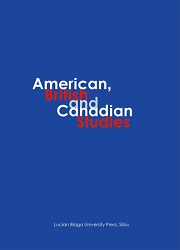Lineage versus Affect in Shakespeare’s, Brontë’s, and Faulkner’s Representations of Family Systems
Lineage versus Affect in Shakespeare’s, Brontë’s, and Faulkner’s Representations of Family Systems
Author(s): John PeacockSubject(s): Comparative Study of Literature, Individual Psychology, Psychoanalysis, British Literature, American Literature
Published by: Editura Universitatii LUCIAN BLAGA din Sibiu
Keywords: Family systems; lineage; affect; reversal; repetition; homeostasis; William Shakespeare; Emily Brontë; William Faulkner;
Summary/Abstract: King Lear makes his daughters compete for inheritances by declaring “which of you . . . doth love us most.” His youngest refuses to let her dowry depend on displaying filial piety, instead declaring her fealty in the old, less emotional language of lineage: “I love your Majesty / According to my bond; no more nor less.” Brontë’s Heathcliff expresses the dialectic of lineage and affect in terms of affective will and testamentary wills. By asserting the former, he succeeds in revising the latter – forcing his dying son to name him his heir. Faulkner’s protagonists identify with grandparents in order to reassert older, extended lineage ties over unacceptable affective ties to parents or siblings. Or else they do just the opposite: repudiating lineages to miscegenetic or incestuous grandparents in order to form more responsible emotional bonds. Whichever generation they consciously identify with, they often end up unconsciously perpetuating the example of the generation they rejected. In family systems, role reversal often keeps things essentially the same. A homeostatic tendency resists the inevitabilities of children growing up and becoming parents, of parents growing old and reliving some of their former feelings of dependency as children, only now vis-à-vis their own children.
Journal: American, British and Canadian Studies
- Issue Year: 2022
- Issue No: 38
- Page Range: 99-116
- Page Count: 18
- Language: English
- Content File-PDF

